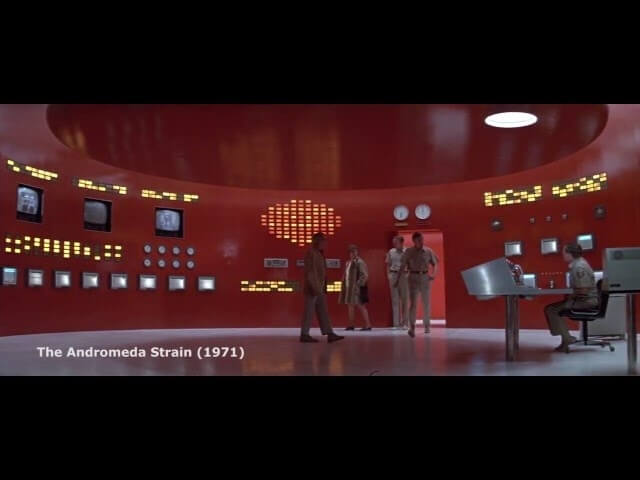How control rooms in movies and TV have changed with the times

The control room filled with blinking lights and glowing monitors is such a hallmark of movies and TV that viewers may not even give this particular trope a great deal of conscious thought. These sets are practically mandatory in stories about modern warfare, terrorism, global politics, and espionage. But why? Cormac Deane explores the topic in a video essay called “The Cinematic Control Room 1971-2015,” explaining not only how these rooms came into existence in the first place but also how they have evolved to keep up with technology and world history. Deane describes a control room as “a place where complex systems are watched and manipulated by multiple operators, usually seated at consoles and facing a bank of screens.” Deane begins his history of cinematic control rooms with 1971’s The Andromeda Strain. Though they had been around since the 1920s, real-life control rooms ignited the collective imagination during the space race of the 1960s. In the early days, cinematic control rooms looked hard-wired and pre-planned. As the decades wore on and enemies became less monolithic, control rooms became more versatile and mobile by necessity. But, Deane argues, they have always demonstrated how power is expressed through technology.
Those seeking a shorter and more irreverent take on the subject are directed toward “Let’s Enhance,” a video essay by Duncan Robson. As the title indicates, this supercut concentrates on one particularly popular and time-honored control room activity: zooming in on a surveillance image and “enhancing” it so that greater detail may be seen. Every police officer, FBI agent, and MacGyver in the world seems to think this can be easily accomplished with just a few simple keystrokes. It helps to throw a few buzzwords like “algorithm” and “bitmap” into the mix for the sake of authenticity, too. Does it actually matter what they mean? Not really.
Let’s Enhance (HD) from Duncan Robson on Vimeo.
[via MetaFilter]